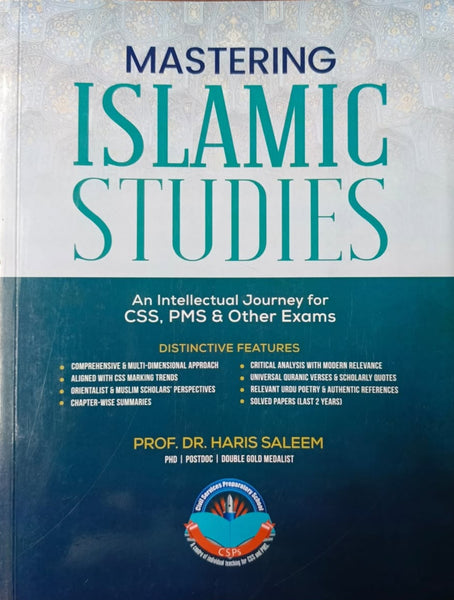Contemplation: An Islamic Psychospiritual Study By Malik Badri
- Publisher: ISLAMIAT BOOKS
- Availability: In Stock
- SKU: 48205
- Number of Pages: 172
Rs.490.00
Rs.695.00
Tags: best books , Best Selling Books , contemplation , deep reflection , dhikr , emotional growth , emotional stability , ethical decision-making , ethical framework , faith and psychology , good books , holistic growth , holistic well-being , iman , Islamic contemplation , Malik Badri , mental health , modern life stress , muraqabah , personal fulfillment , Quranic meditation , Quranic reflection , Quranic wisdom , reason and intuition , Recommended Book , reflective practice , reflective techniques , remembrance of Allah , sakina , self-awareness , self-transformation , self-understanding , spiritual connectedness , spiritual enlightenment , spiritual exercises , spiritual insights , spiritual intuition , spiritual practices , spiritual purification , spiritual reflection. , spiritual values , spiritual wisdom , stress reduction , taqwa , tazkiyah
Contemplation: An Islamic Psychospiritual Study
Author: Malik Badri
Binding: Paperback
Paper Quality: A5 Matt Paper
Category: Islamic Psychology, Spirituality, Islamic Philosophy, Mental Health
Recommended For: Students of psychology and Islamic studies, mental health professionals, researchers in spirituality, and anyone seeking a deeper understanding of Islamic contemplative practices.
Key Points:
1. Definition of Contemplation Contemplation in Islam is defined as a deep reflective practice aimed at understanding the self, one's relationship with Allah (God), and the purpose of existence. It involves introspection, meditation on Quranic verses, and seeking spiritual enlightenment.
2. Importance of Inner Peace Central to Islamic contemplation is the cultivation of inner peace (sakina) through connecting with Allah and aligning one's actions with spiritual values. This inner peace serves as a foundation for emotional stability and resilience.
3. Integration of Mind and Heart Badri emphasizes the integration of intellect (‘aql) and heart (qalb) in contemplation, stressing the harmony between reason and spiritual intuition as essential for holistic personal growth.
4. Psychological Benefits Contemplation provides psychological benefits such as stress reduction, increased emotional intelligence, and enhanced self-awareness. It fosters a deeper understanding of one's emotions and motivations.
5. Spiritual Growth Through contemplation, individuals deepen their relationship with Allah, experience spiritual growth, and strengthen their faith (iman). It serves as a means of spiritual purification (tazkiyah) and self-transformation.
6. Role of Quranic Reflection The Quran serves as a primary source for contemplation, offering guidance, wisdom, and spiritual insights that individuals can reflect upon to gain deeper understanding and guidance in their lives.
7. Practical Techniques Badri discusses practical techniques for engaging in contemplation, including meditation (muraqabah), mindfulness of Allah (taqwa), and the remembrance of Allah (dhikr), which are integral to Islamic spiritual practices.
8. Relationship with Mental Health Islamic contemplation is shown to have positive implications for mental health, promoting resilience, coping strategies, and psychological well-being through spiritual connectedness and faith.
9. Contemporary Relevance The practice of contemplation remains relevant in contemporary times, offering a profound antidote to the stresses of modern life and providing a framework for ethical decision-making and personal development.
10. Universality of Contemplative Practice While rooted in Islamic tradition, the principles of contemplation transcend religious boundaries, offering insights and practices that can benefit individuals of diverse cultural and spiritual backgrounds.
In summary, "Contemplation: An Islamic Psychospiritual Study" by Malik Badri illuminates how the practice of contemplation enriches both spiritual fulfillment and psychological resilience, highlighting its relevance in fostering holistic well-being and personal growth.
════ ⋆★⋆ ════
Writer ✤ Malik Badri

























